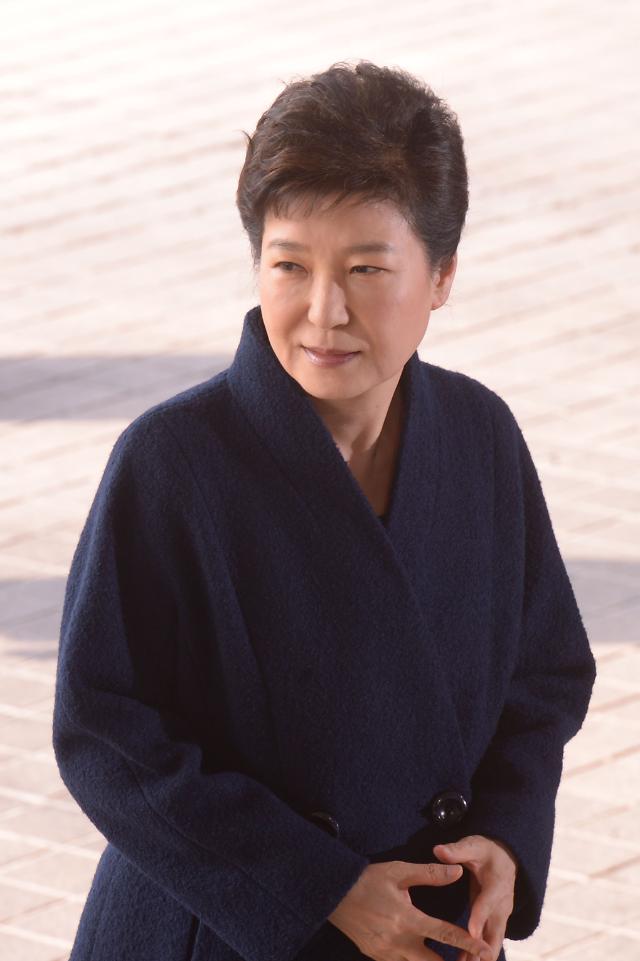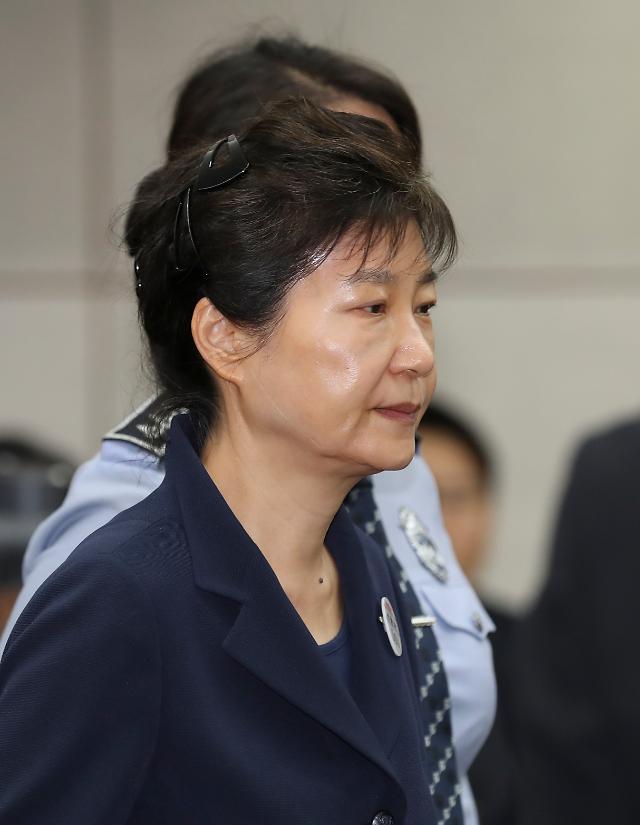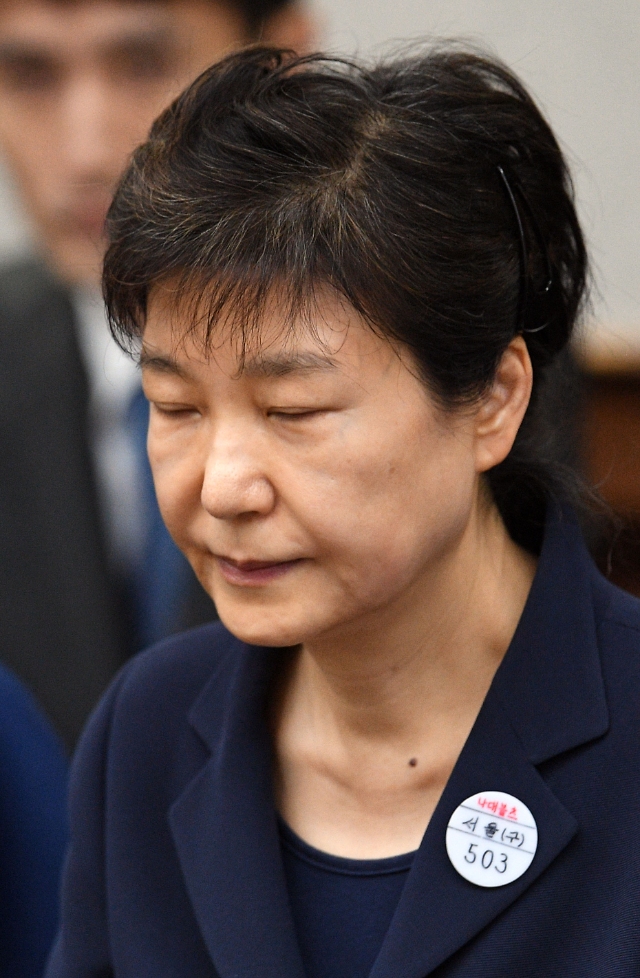 Expelled president Par Geun-hye enters the prosecutors' office to be interrogated. [Press Corps]
Expelled president Par Geun-hye enters the prosecutors' office to be interrogated. [Press Corps]Park, 65, is accused of abusing her "powerful status and authority" to let her crony collect money from businessmen. Prosecutors insist there is a risk of her destroying evidence as she has repeatedly denied any wrongdoing despite ample evidence.
If a court agrees, she would be the third ex-president to be placed behind bars in South Korea's political history that brought a misfortune to former national leaders starting with Rhee Syngman, the first president who ruled from 1948 to 1960.
Rhee, an anti-communist strongman, led South Korea through the 1950-53 Korean War. After the war ended, he was reelected but amended the constitution to win his fourth term in office in 1960 in a disputed election that triggered popular protests. He resigned and fled to live in exile in Hawaii.
In the midst of social and political turmoil caused by Rhee's resignation, Park Chung-hee, a former general and father of Par Geun-hye, staged a military coup to seize power in 1961. In 1972, he declared martial law and recast the constitution into a highly authoritarian document. His dictatorship ended in October 1979 when he was assassinated by his intelligence chief.
Park Chung-hee was credited with pioneering South Korea's rapid industrialization. At the same time, he was criticized for the brutal suppression of democracy under his 18-year authoritarian rule.
His successor, Chun Doo-Hwan, took a similar path as an army general and ruled from 1980 to 1988 following a brutal military crackdown on a pro-democracy uprising in the southern city of Gwangju. He was sentenced to death in 1996 for mutiny, treason and other charges. In April 1997, the Supreme Court confirmed his sentence of life imprisonment and ordered a forfeiture of 220.5 billion won (198 million US dollars).
Roh Tae-woo, another former general who led the country for five years from 1988, was arrested and convicted of mutiny and treason for his role in the 1979 coup masterminded by Chun. Both were found guilty of creating massive slush funds with bribes from conglomerates. In 1997, the Supreme Court sentenced Roh to 17 years in jail and have him pay 262.8 billion won in forfeitures. They were pardoned later.
In 2009, Roh Moo-hyun, a former human rights lawyer, committed suicide by jumping from a mountain cliff behind his home following a humiliating probe by prosecutors into alleged corruption involving his family. Under his rule, freedom of speech blossomed, but his poor performance in economy and diplomacy sparked a strong backlash from conservative groups including a faction led by Park Geun-hye.
Now's it's her turn if the court issues a warrant to arrest Park Geun-hye who took office in early 2013 as South Korea's first female president. As a criminal suspect, she was questioned for bribery, abuse of power, coercion, the leak of state secrets and other allegations. She is suspected of helping her jailed crony, Choi Soon-sil, to collect money from top business groups in return for business favors.
Park was impeached by parliament on December 9 at the height of anti-government protests. The constitutional court upheld her impeachment in a landmark ruling on March 10, accusing her of betraying the confidence of voters, and she was expelled from office two days later.
Lim Chang-won = cwlim34@ajunews.com



![[PHOTO NEWS] Police stop naked protestor outside home of expelled president Park Geun-hye](https://image.ajunews.com/content/image/2017/03/20/20170320165647927420.jpg)
